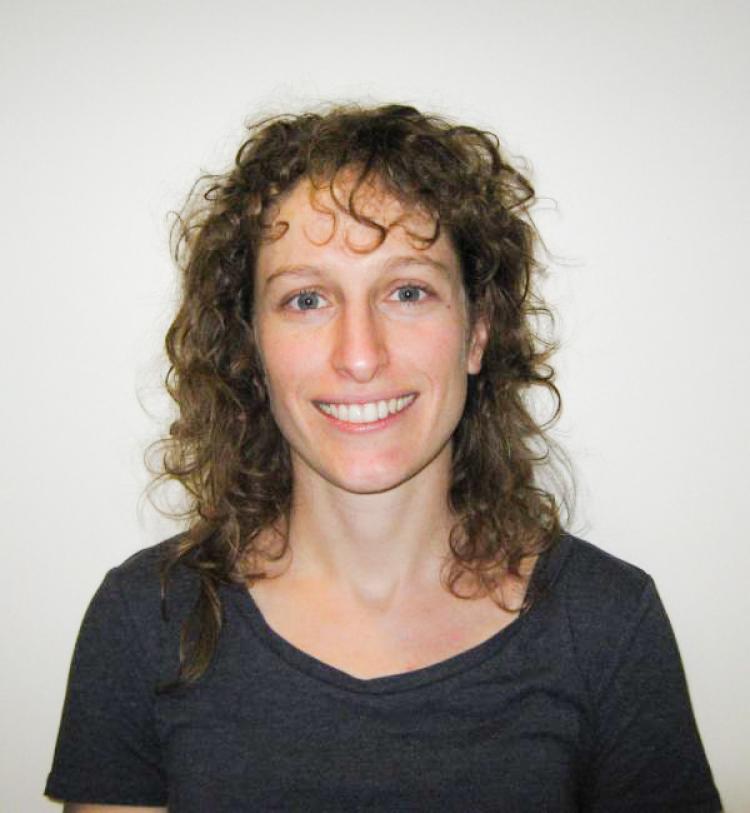Mathematicians win prestigious NSF CAREER Awards
CU Boulder’s Agnès Beaudry and Sean O’Rourke will use the support to advance homotopy theory and random matrix theory
Two young mathematicians at the University of Colorado Boulder have won Early Career Development Program (CAREER) awards from the National Science Foundation (NSF) to advance homotopy theory and, separately, probe the applications of random matrix theory.
Agnès Beaudry, assistant professor of mathematics, has won $475,000 in support for a five-year research project, and Associate Professor Sean O'Rourke has won $430,000 in support of a five-year research project.
The CAREER Program, one of the NSF’s most prestigious awards, supports early career faculty who have the potential to serve as academic role models in research and education and to lead advances in the mission of their department or organization.
Beaudry’s project has two main themes, both of which include the study of stable invariants.
An invariant is an algebraic quantity assigned to a geometric object. The invariant is considered topological, or geometrically unaltered, if a continuous deformation of the object does not change the algebraic quantity assigned to it. It is stable if it is insensitive to certain dimensional shifts.

Above: Agnès Beaudry is a algebraic topologist and homotopy theorist at CU Boulder.
The first line of investigation is in equivariant chromatic homotopy theory, a field of mathematics that studies structural properties of stable invariants for topological spaces with symmetries. A classical example of such invariants is K-theory, which this award studies.
The second line of investigation is part of a multi-disciplinary collaboration with mathematicians and physicists; it uses stable invariants to study the phase of matter., which is a family of quantum systems, or a collection of interacting particles, that share common properties.
For certain types of quantum systems, the phase type can be detected by stable invariants. This project aims to construct new stable invariants of phases and to study stable invariants of quantum systems equipped with certain symmetries.
The project has an educational component, one goal of which is to make the two areas of research accessible to graduate students and advanced undergraduates through graduate workshops.
The educational plan also includes undergraduate and graduate research. In particular, the project will conduct research in collaboration with existing initiatives at CU Boulder that work to promote diversity, equity and inclusion in science, technology, engineering and math (STEM).
Beaudry said she was very thankful for the award. “Equivariant stable homotopy theory (the technical name for the study of stable invariants and their symmetries), has seen a lot of exciting developments recently, and this award explores questions that have been opened by these new advances,” she said, adding:
“And then the fact that this abstract machinery can be used in physics to understand phases of matter is surprising and fascinating. I’ve been extremely lucky that my path through mathematics has put me in a position where I can have the opportunity to work in these two areas with amazing mathematicians and physicists. The award will allow me to share this privilege with students, helping them join these areas of research. … I look forward to giving students from all kinds of backgrounds the opportunity to learn about these exciting topics.”
O'Rourke’s project, which has funding under the American Rescue Plan Act of 2021, will focus on random matrix theory and its applications. Random matrices arise naturally in many fields, including statistics, data science, computer science and physics, his abstract notes.
For example, random matrices were originally introduced in physics to study the nuclei of heavy atoms.
O’Rourke’s project aims to understand the properties of certain random matrix models that arise in diverse domains, including control theory, statistical genetics and the study of neural networks.
Beyond supporting my own research and the research of my graduate students, this award also recognizes the importance of mathematics education and research at the undergraduate and high school levels.”
“This research opens the door to a deeper understanding of applications in these domains and has the potential to create avenues of future fundamental research in random matrix theory and related fields,” he states.
The overarching research goal of this project is to understand the behavior of the eigenvectors (a nonzero vector) and eigenvalues (when eigenvectors are scaled) of random matrices with dependent entries. The research program will be divided into three themes, he states.
The first theme concerns the eigenvalues and eigenvectors of matrices arising in the study of random networks and graphs, including matrices that appear in synchronization problems and network control theory.
Motivated by open questions in statistical genetics, the second theme concerns the spectral properties of sample covariance matrices constructed from dependent random samples.
The third theme is inspired by the theoretical study of neural networks and involves random matrix products.
O’Rourke’s project also features educational components that integrate research and teaching. These components include a summer academy for high school students interested in advanced mathematics and undergraduate and graduate student mentoring, training, and research.
“It is a great honor to receive this award, and I am grateful for the opportunities it provides. Beyond supporting my own research and the research of my graduate students, this award also recognizes the importance of mathematics education and research at the undergraduate and high school levels,” O’Rourke said.
Including Beaudry and O’Rourke, 174 CU Boulder faculty members have won NSF CAREER Awards since 1996.

